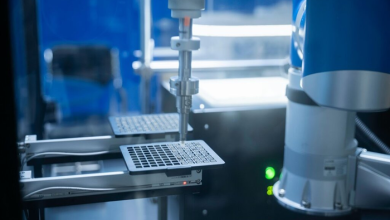
Smartphones are everywhere. In our pockets, on job sites, inside security booths, and clipped to belt loops in warehouses. They’re powerful, sleek, and jam-packed with features.
But when things go sideways—power goes out, cell towers overload, a fast decision is the difference between order and chaos—two-way radios don’t just hold their own. They win.
Here’s why, when it really counts, professionals across industries still reach for radios—not phones.
Smartphones Are Smart—Until They Aren’t
Sure, phones can do everything… until the battery dies, the screen cracks, or you’re standing in a dead zone.
Two-way radios? They’re built for the bad days.
In critical situations like:
- Emergency evacuations
- Security threats
- Natural disasters
- Large-scale public events
…radio communication isn’t just preferred—it’s essential.
You don’t have time to swipe, unlock, scroll, or pray for signal. You need to press one button and speak. That’s it. Radios deliver on that, every single time.
Speed of Communication: Nothing’s Faster Than Push-to-Talk
Let’s talk latency.
Phones require you to:
- Open an app or dial
- Wait for the connection
- Hope the person picks up
- Start the conversation
Radios skip all of that.
One button. Instant broadcast. Everyone hears it—immediately.
In high-stakes environments like:
- Event security
- Construction sites
- Hospital emergency response
- Transportation and logistics
…seconds matter. The ability to communicate without delay can prevent accidents, mobilize help faster, or simply keep things from spiraling.
Built for Abuse, Not Likes
Smartphones are fragile creatures. Drop one from shoulder height and it may never recover. Add rain, dust, or gloves to the mix? Forget it.
Radios are:
- Shock-resistant
- Water- and dust-proof (IP-rated)
- Glove-friendly (yes, that’s a thing)
- Made for environments where things get dirty, loud, and unpredictable
When equipment has to work in the rain, on scaffolding, or while you’re sprinting across a venue—two-way radios don’t flinch.
Radios Don’t Rely on Congested Networks
Picture this: you’re at a major event or in the middle of a storm response, and everyone’s on their phone. Suddenly, calls drop, messages hang, and LTE becomes wishful thinking.
Radio systems—especially those using dedicated frequencies or push-to-talk over cellular (PoC)—can continue to operate independently of congested public networks.
Your communication doesn’t compete with 10,000 TikToks uploading at once. It just works.
Battery Life That Actually Lasts
Even the best smartphones struggle to survive a full 12-hour shift with heavy use. Radios? They were built to go the distance.
Most two-way radios offer:
- 12–20 hours of use per charge
- Removable batteries for hot-swapping
- No power-hogging apps draining them in the background
In critical operations where every hour matters, radio users aren’t nervously eyeing the battery bar—they’re focused on the mission.
Security and Simplicity Go Hand in Hand
Two-way radios offer:
- Encrypted communication (on digital models)
- Limited access channels
- No risk of phishing links or app-based distractions
They don’t get hacked. They don’t send selfies to the wrong thread. They just do their job—connect teams when it counts.
Final Transmission: Radios > Phones When It Matters Most
Smartphones are brilliant tools. But in the field, on the floor, or in the middle of a crowd, they’re not built for this.
Two-way radios remain the tool of choice for professionals who can’t afford dropped calls, slow response, or “try turning it off and on again” moments.




